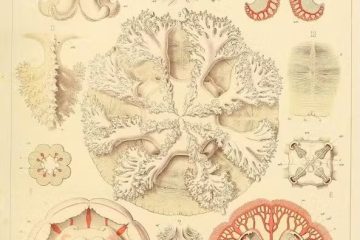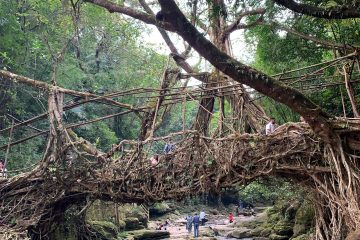Florida Is Burning: A Call for Connective Knowledge Systems

During the post-civil war era, there was a struggle to begin to define an “American” history. As you might imagine, those in the former confederate states and those in the former union states had differences about what counted as “history.” These differences materialized, in part, in the textbooks that publishing houses promoted to school districts “in the north” and those “in the south.” The southern textbooks (mostly former confederate states) became known as “Mint Julep” editions: mint julep’s are a delicious, whiskey and mint based cocktail associated with the Kentucky Derby horse races. These “mint julep” editions of textbooks basically participated in the white washing of history: history told from the perspective of white southerners meant a downplay of the genocide and slavery the re-emerging nation was built upon.
Fast-forward to 2022, when several state governors and legislators are attempting to resuscitate these whitewashed histories as official curricula. Ron DeSantis, and the conservative legislature of the state of Florida, have been at the forefront of a return to “Mint Julep” history in the southern (but not only the southern) united states. His “don’t say gay,” and “anti-woke” bills; the dismantling and reconstruction of local school boards to mold them in the image of the conservative party; the voting laws and re-districting that make it harder for people of color to vote; the re-writing of AP African American history for public schools in an effort to rid it of “critical race” and “queer theories;” the de-funding of diversity, equity and inclusion programs and efforts at the public university level; the hostile take-over of Florida’s “New College,” and re-making it into a college promoting conservative values; and the desire and attempts to dismantle tenure and unions at Florida’s public universities are all part of this desire to return Florida to a “Mint Julep” era.
The argument from the political right is that the left has been involved in a hostile takeover of higher education since the time of WWII (as part of what the far political right thinks of as the “deep state” beginning with President Franklin D. Roosevelt’s New Deal). The rebuttal from the political left is one of astonishment, and arguments that suggest critical knowledge depends upon these critical theories that the right deems to be left ideology. It seems, to some extent, that each side is accusing the other of radical ideology, which means those who shout the loudest and have the most political power will win. Given the aforementioned ways in which the conservatives have “won” political and educational power in the state of Florida, this battle seems all but over.
The question I have in this brief blog is, how did we get to this point in which the erosion of public space (in the Arendtian sense of a space of genuine political dialogue) has now reached institutions of higher education? Furthermore, what can be done other than battening down the hatches and preparing for ideological war? It seems to me, that we educators need to pause and think about what knowledge is, and what it is for, before we can answer the question of how we might move forward. I can’t even try to provide you with an overview of the history of epistemology and its connection to ethics and ontology in this short blog, but I can try to outline two broad systems of knowledge: one that I might call reductive, and the other I might call connective.
The reductive model, which I will equate with the DeSantis and Mint Julep models, is one that reduces knowledge to single perspectives, truths, and approaches. You can find this model in some versions of scientific reductionism (it’s all in the genes, or its all chemical, or it’s all in the neurons). This model tends to place (some) humans as “exceptional” to the rest of the natural world and as somehow capable of having an objective, birds-eye view of the rest of the natural world, which can be explained solely by flows of energy and materials. This view also, because it argues for a single perspective / truth, places a single human perspective as the correct perspective. There are, in other words, no critical approaches to knowledge, but there is just correct knowledge, and everyone must assent to it. It is this type of reductive knowledge that eliminates all other perspectives than “the one.”
The connective model of knowledge operates from a different starting point. We humans are a part of an evolving community of life, and there is no outside space from which to gain an objective, birds-eye view of the world. In fact, no such space exists: there are just multiple perspectives of the common planet on which we live, and which we co-constitute. From the perspective of this type of knowledge, the gauge of whether or not knowledge is “good” knowledge is how much it helps us to think with others (both human and non) and work toward co-constructing worlds that provide political space for multiple perspectives and ways of being to thrive. Certainty and single-mindedness are the enemies of this system of knowledge production.
As the reader is likely aware, I am partial to the latter version of knowledge, and for good reasons. I think this type of knowledge creates more connection between the humus of humanity and humility, and the humus that is the dirt of the earth. It goes a long way to prevent knowledge from fleeing the planet and its many creatures. This connective form of knowledge also helps to foster com-passion: we can identify the ways in which multiple others are suffering as a result of long histories of colonization, human exceptionalism, sexism, racism, and genocide. With knowledge focused on humility and compassion, we might build genuine political spaces of con-versation: spaces in which we enter dialogue with the genuine possibility of being converted by other perspectives. Finally, from these spaces of political dialogue and conversation (again in the Arendtian sense) we might find new com-panions, the sharing of bread (pan), but more broadly food and earth resources, in ways that promote better understandings of the things those within the entire planetary community need to flourish.
#
Whitney A. Bauman is Associate Professor of Religious Studies at Florida International University (FIU) in Miami, FL. He is also co-founder and co-director of Counterpoint: Navigating Knowledge, a non-profit based in Berlin, Germany that holds public discussions over social and ecological issues related to globalization and climate change. His areas of research interest fall under the theme of “religion, science, and globalization.” He is the recipient of a Fulbright Fellowship and a Humboldt Fellowship, and in 2022 won an award from FIU for Excellence in Research and Creative Activities. His publications include: Religion and Ecology: Developing a Planetary Ethic (Columbia University Press 2014), and co-authored with Kevin O’Brien, Environmental Ethics and Uncertainty: Tackling Wicked Problems (Routledge 2019). The 3rd edition of Grounding Religion: A Fieldguide to the Study of Religion and Ecology, co-edited with Kevin O’Brien and Richard Bohannon, is due out with Routledge in late 2023. His next monograph is entitled, A Critical Planetary Romanticism: Literary and Scientific Origins of New Materialism (Columbia University Press 2023).
Counterpoint blogs may be reprinted with the following acknowledgement: “This article was published by Counterpoint Navigating Knowledge on 16 February 2023.” The views and opinions expressed on this website, in its publications, and in comments made in response to the site and publications are those of the author(s) and do not necessarily reflect the views and opinions of Counterpoint: Navigating Knowledge, its founders, its staff, or any agent or institution affiliated with it, nor those of the institution(s) with which the author is affiliated. Counterpoint exists to promote vigorous debate within and across knowledge systems and therefore publishes a wide variety of views and opinions in the interests of open conversation and dialogue.
Photo credits: Lightspring, free download from Shutterstock.



